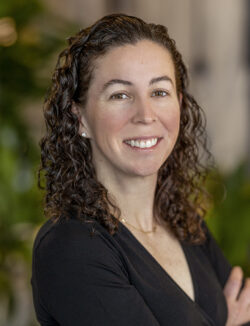You Be the Judge
Is Injury on Public Street Covered by Workers’ Comp?

A French and Spanish professor for the University of South Carolina was reviewing resumes in the library on behalf of a search committee looking to hire a new professor.
She left the library when it closed. To reach her car, which was in a university lot provided for faculty and student parking, she had to cross a public street. While crossing the street, the professor was struck by a vehicle and injured.
The street and crosswalks were not owned or controlled by the university but were maintained and controlled by the city. Both the library and the parking lot belonged to the university.
The professor sought workers’ compensation benefits. The university’s insurer, State Accident Fund, denied the claim on the basis that the professor was injured away from the university’s property.
The professor appealed, and the Court of Appeals held that her injuries did not arise out of and in the course of employment. The professor appealed.
Was the commission correct in finding that the professor’s injury was not compensable?
- A. No. The professor was injured attempting to leave the university’s premises by traveling a direct route from the library to her car in a parking lot provided for employee and student parking.
- B. Yes. The professor was not on the university’s property when she was injured.
- C. Yes. The professor was not required to use the parking lot across the street from the library.
How the Court Ruled
B is incorrect. The court found no justification to deny compensation just because the accident occurred while the professor was crossing a public road. The professor was injured traveling between two portions of the university’s premises as anticipated at the end of her workday, so her injuries were compensable.
C is incorrect. The court found it relevant that the university allowed the professor to park in the lot across the street from the library, and once she did, the necessity of crossing the public street arose.
The university could not avail itself of the benefits that came from providing its employees a place to park and then disclaim responsibility for the consequences of that decision.
A is correct. In Davaut v. University of South Carolina, No. 27673 (S.C. 10/26/16), the South Carolina Supreme Court held that the professor’s injury was compensable, as her injury arose out of and in the course of her employment.
The court held that workers who must cross a public way that bisects an employer’s premises and who are injured on that public way while traveling a direct route between an employer’s facility and parking lot are entitled to workers’ compensation benefits.
The court rejected the university’s argument that the adoption of the divided premises rule would be unworkable. The university asserted that under this rule a worker injured while traveling between two portions of an employer’s premises will be compensable regardless of the reason for the travel or the route taken by the worker.
The court explained that a worker must still be injured in the performance of her employment “duties and while fulfilling those duties or engaged in something incidental thereto.”
Editor’s note: This feature is not intended as instructional material or to replace legal advice.











